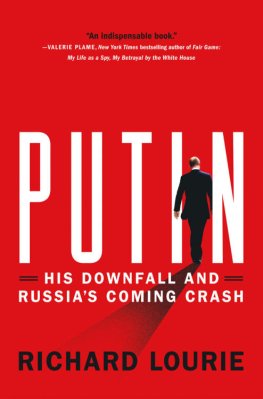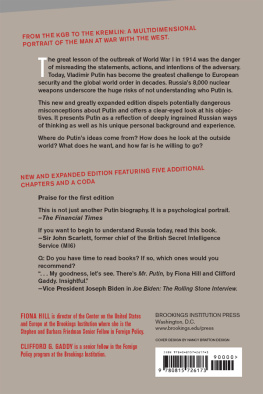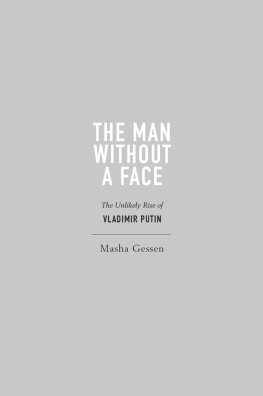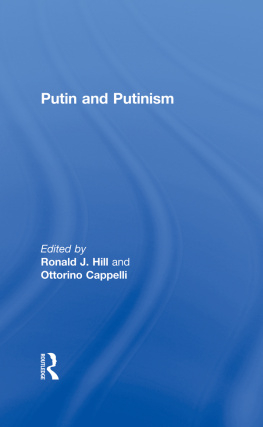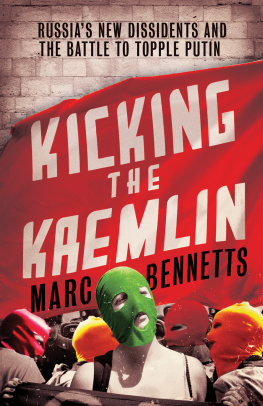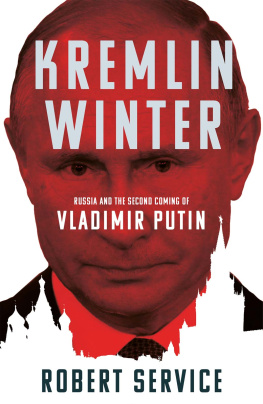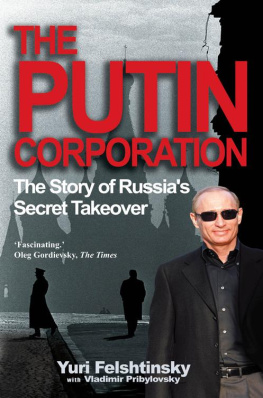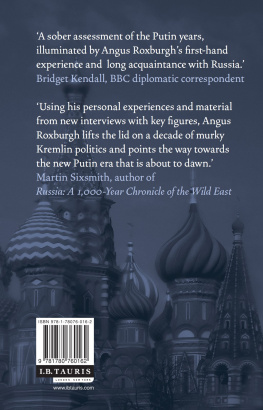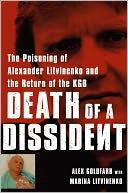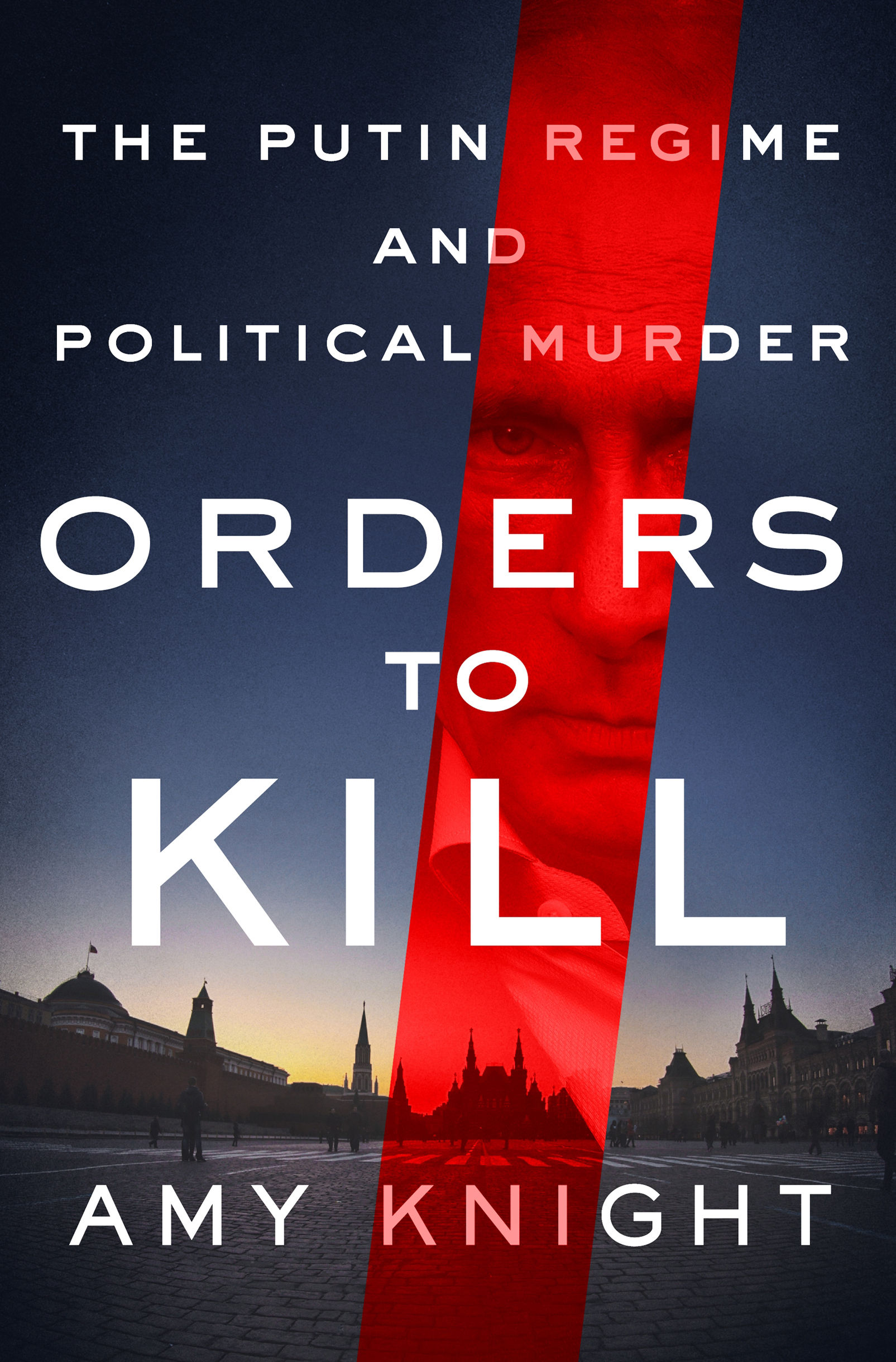Contents
Guide
Pagebreaks of the print version
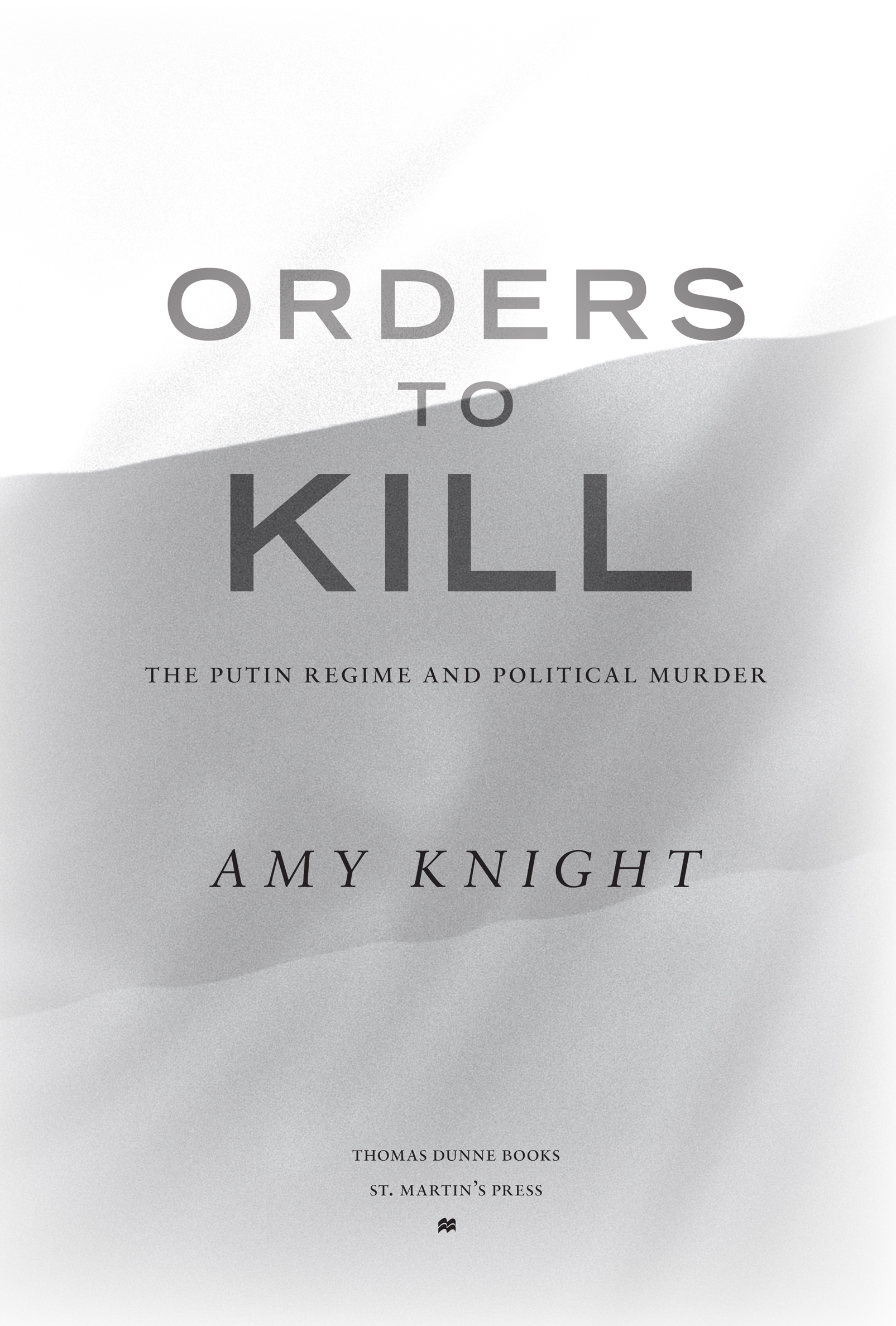
The author and publisher have provided this ebook to you for your personal use only. You may not make this ebook publicly available in any way. Copyright infringement is against the law. If you believe the copy of this ebook you are reading infringes on the authors copyright, please notify the publisher at: us.macmillanusa.com/piracy.
To Marina Litvinenko, a woman of extraordinary courage and perseverance
Nobody has proven that hes killed anyone. Hes always denied it. It has not been proven that hes killed reporters.
DONALD TRUMP ,
speaking about Russian president Vladimir Putin, December 2015
A dog senses when somebody is afraid of it, and bites. If you become jittery, they will think that they are stronger. Only one thing works in such circumstancesto go on the offensive. You must hit first, and hit so hard that your opponent will not rise to his feet.
VLADIMIR PUTIN ,
First Person: An Astonishingly Frank Self-Portrait
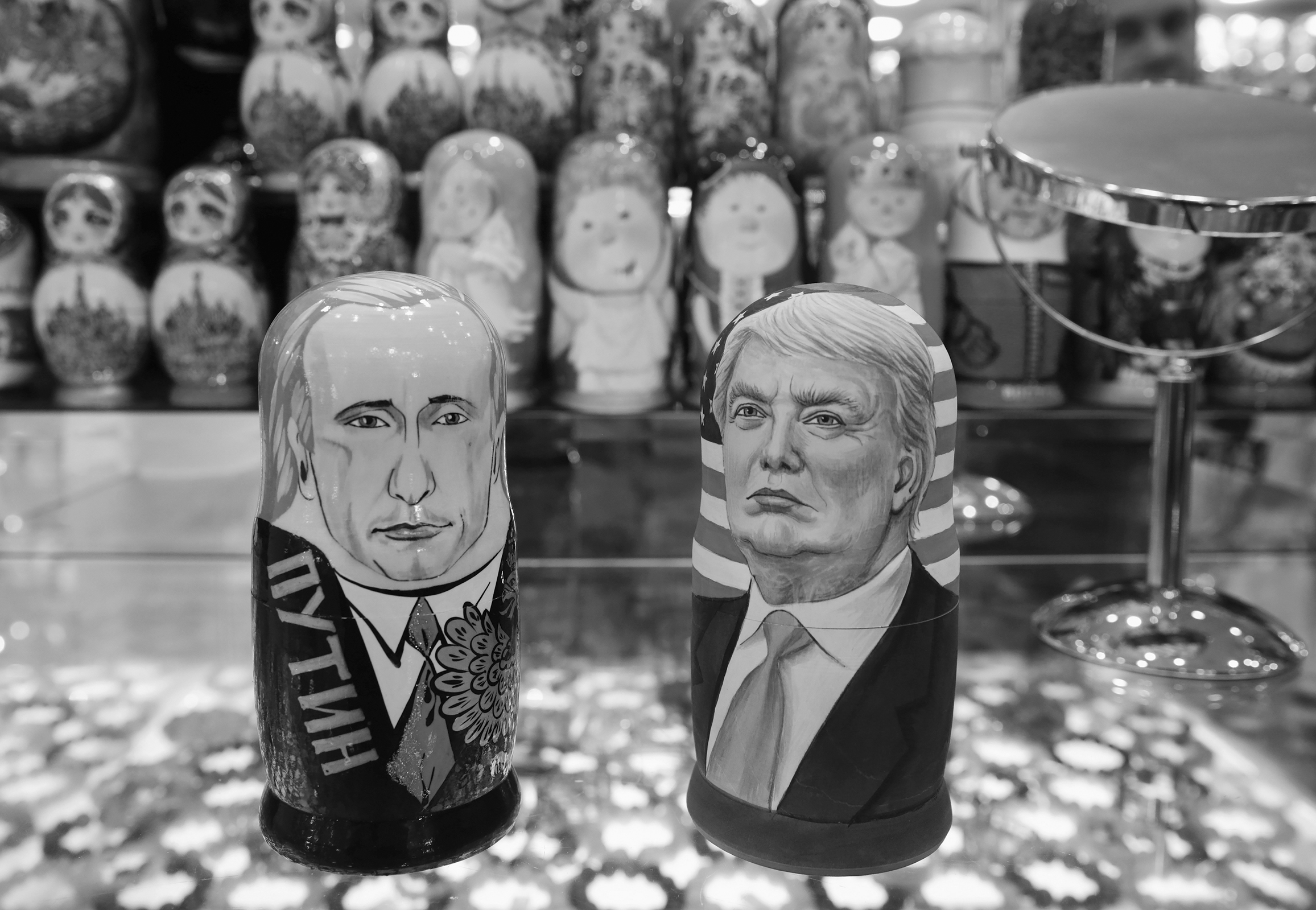
Our two leaders of the Western World.
(Photograph courtesy of Mikhail Pochuyev/TASS)
On February 28, 2015, shortly after I had returned from London, where I attended hearings of the British High Court into the 2006 murder there of ex-KGB officer Alexander Litvinenko, I woke up to terrible news. Late on the previous night, Boris Nemtsov, Russias leading democratic oppositionist, had been gunned down while walking with his girlfriend on a bridge just minutes from the Kremlin. Id never met Nemtsov in person, but had had several conversations with him by phone in the spring of 2008, when I was writing an article for The New York Review of Books about a groundbreaking report Nemtsov had just published, together with his colleague Vladimir Milov, on the vast corruption of the Putin regime. Nemtsov, who continued to meticulously document claims against Putin in further reports, and traveled to Washington to urge the U.S. Congress to broaden the list of Putins cronies who were on the U.S. sanctions list because of their human-rights violations and the invasion of Crimea, was my hero and a hero to many others in both Russia and the West. Now he was no more.
When I heard about Nemtsovs murder, I recalled, with a shiver, a visit Id had with Milov in Moscow in March 2008, when Nemtsov was traveling abroad. Milov explained to me why it was so important for him and Nemtsov to publish their scathing indictment of the Putin regime. They were trying, against seemingly insurmountable odds, to get the truth out about Putin and his allies so that their democratic movement would gain momentum. Milov, a former official in the Russian government, told me that he had heard that their report had created a hysterical reaction in the Kremlin and led to urgent high-level meetings. I asked him if he was not worried that he and Nemtsov were in danger. He just laughed and said that if anything happened to them, it would be a huge advertisement for their report. Something did happen. Seven years later, the Kremlin finally got its revenge.
Nemtsovs murder sent shock waves throughout Russia and beyond. U.S. President Barack Obama, who had met Nemtsov in Moscow in 2009, condemned the killing and praised Nemtsov for his defense of human rights and his courageous dedication to the struggle against corruption in Russia. But Obama unfortunately avoided the fact that Nemtsovs revelations about Russian corruption were directed specifically at Putin and his close cronies, which was probably why he was killed. Obama said that we call upon the Russian government to conduct a prompt, impartial, and transparent investigation into the circumstances of his murder and ensure that those responsible for this vicious killing are brought to justice. Did he not realize, after more than six years of dealing with the Kremlin, that a transparent investigation of the case was virtually impossible in Putins Russia?
Many Russia experts, myself included, had already expressed the view that Putin and his colleagues were behind earlier killings of Russian oppositionists and independent journalists who criticized the regime. But the murder of Putins most outspoken foe on the doorstep of the Kremlin took his galling vengeance against his critics to a whole new level. The Bolshoi Moskvoretskii Bridge, where Nemtsov was riddled with bullets from a Makarov pistol, was under the extensive surveillance (both by cameras and manned patrols) of Putins Federal Protective Service (FSO) because of its proximity to the Kremlin. Yet, strangely, the cameras were not working that fateful night and there were no patrols in sight. The killers, Chechens, were rounded up within a few days, but the person who orchestrated the murder has never been identified.
In looking at the Nemtsov killing after decades of studying the Soviet Union and Russia, I was struck by how scary and unpredictable Russia has become, even in comparison with the post-Stalin years, when Khrushchev and then Brezhnev were running the show. Yes, of course the Soviets had a massive nuclear-weapons arsenal (which the Russians still have) and there were dangerous confrontations between the Soviets and the West, most notably over Cuba in 1962 and later in the Middle East in 1967. Using the KGB, the Kremlin was ruthless in its persecution of political critics, throwing them in labor camps after mock trials or in psychiatric institutions. As a student in the Soviet Union in the summer of 1967, I was myself arrested by the KGB for consorting with dissidents and interrogated throughout the night, only to be released the next day after bribing my KGB questioners with Marlboro cigarettes. But Stalins successors did not, with a few exceptions, resort to killing dissidents; they did not need to.
Things are different now, in many ways. When I was arrested in Kiev, Ukraine was still part of the Soviet Union, and the Kremlin was in control of a vast territory. Now Ukraine has forged its own way as an independent state, along with countries in the Baltic region and states in the Caucasus and Central Asia. The Putin regime does everything it can to maintain Russias sway over its former empire, but is increasingly threatened by the rise of democracy outside its borders. Indeed, the Kremlin greatly fears the spillover effect from peoples revolutions in Georgia and Ukraine. So its modus operandi against opposition in Russia has become a murderous game: make an example of critics by killing them.
The new U.S. president, Donald Trump, has voiced admiration for his Russian counterpart, Vladimir Putin, because, in Trumps view, Putin rules with a strong hand at home and does not hesitate to boldly assert his countrys global interests. There is no doubt that Putin wields tremendous political power and that Russias military assertiveness abroadin Ukraine, Syria, and elsewherehas made his country a major player in the global arena after its decline during the Yeltsin era. (This is not to mention Russias recent use of sophisticated cyberwarfare and disinformation to influence American and European electoral processes, which adds to the picture of Russias strength as a nation.)
But if one looks below the surface, one sees a different picture. Because of lower oil prices and Western sanctions, Russias economy is stagnating badly, with real incomes falling and its national debt growing significantly. Corruption, rampant among the Kremlin elite, has resulted in highly publicized scandals, and it may be only a matter of time before ordinary Russians will express resentment over the huge discrepancy between their modest incomes, many below the poverty line, and the vast wealth of Putin and his cronies.


